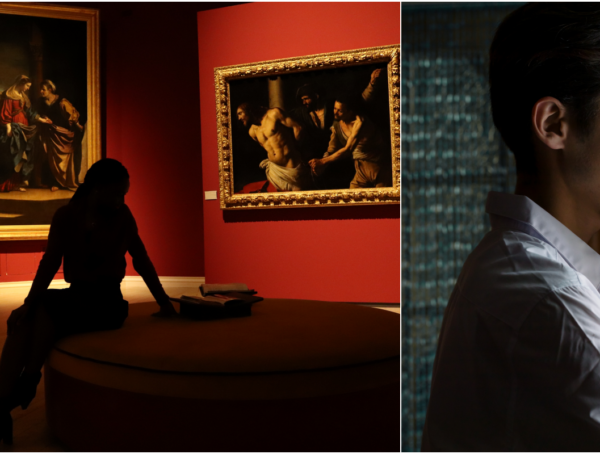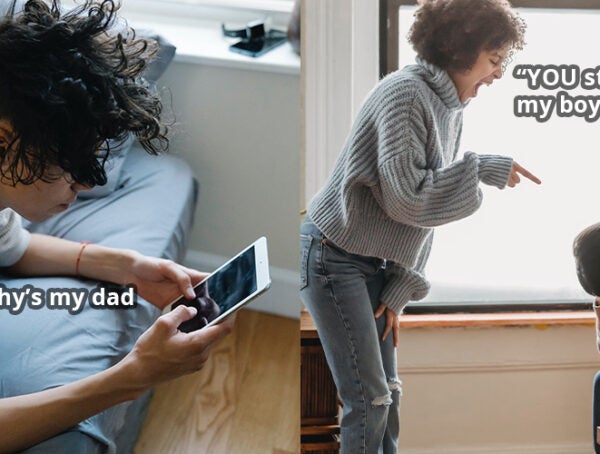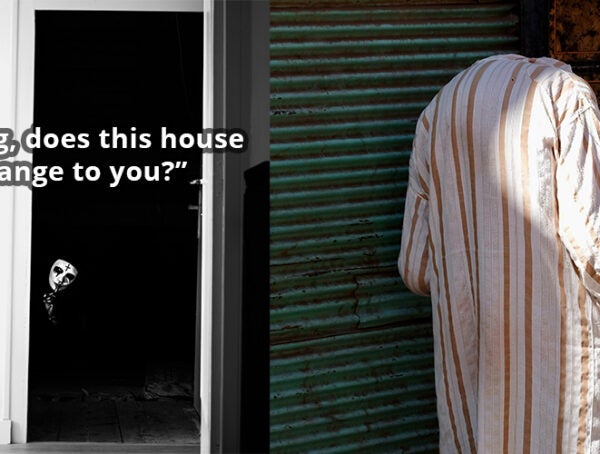“Wah. Looks like yakuza girl!”
That’s what they say when they see my tattoos.
Much of my upper body (except my forearms) are covered with tattoos. An oriental-inspired tattoo takes up major real estate on most of my back, terminating just above my thighs.
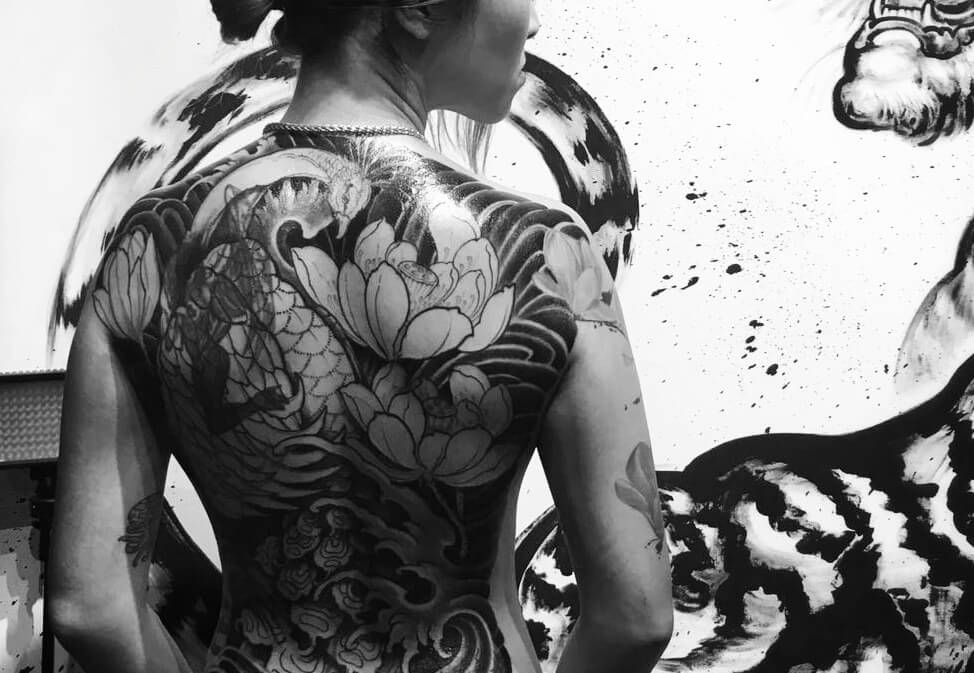
image credits: daryl mander. Backpiece tattoo by yang lee, right arm sleeve by eric kueh, small octopus on the inner left arm by fin tattoos.
In a conversation with a Western friend visiting Malaysia, he remarked:
“Malaysians seem to be really cool with tattoos! Lots of you have ink even though its a Muslim country.”
I was taken aback by what he said.
Growing up in Malaysia, many of us were raised with the idea that tattoos = bad guy. It was almost taboo, even more so for women. Only “bad girls” had tattoos.
But here’s the thing – I love my tattoos, but I also work in corporate settings. The sight of my tattoos still sends a thrill of pleasure through me.
Getting inked was part of my slow process of self-reclamation. My skin now finally feels like it really belongs to me – my outsides finally match up with my insides.
Compelled by my friend’s remark, I spoke to many Malaysians about their prevailing views on body art.
So, how do Malaysians really feel about tattoos?
The first people I interviewed were the baby boomers (born between 1946 and 1964).
When we first started dating, my boyfriend’s mother, 62, jokingly asked him, “Aiyooo, why your girlfriends all got tattoo one?”
My mother, 63, weathered the youthful rebellion of my teens and twenties with much confusion and heartache.
“My parents shunned tattooed people. They were thought to be taikors (triad members) or samsengs (gangsters). But my father had a tattoo on his hand. He got it when he was a boy, with his friends,” she told me one day, out of the blue.
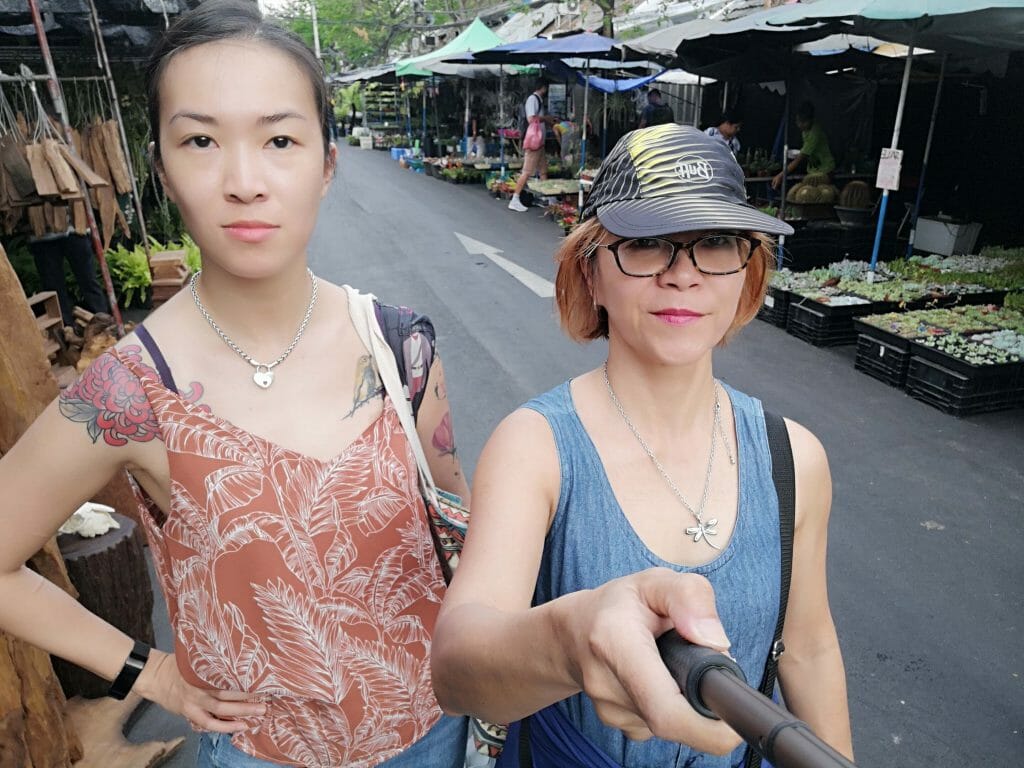
selfie of the author and her mother. Traditional chrysanthemum kiku tattoo by hori-yo, pair of oriental white-eyes by eric kueh.
For others, tattoos were a hard nope.
Those views were not just limited to the older generation.
“Tattoos on guys… I don’t think there’s an issue. But I’m still conservative and I don’t like tattoos on girls. Especially big tattoos.”
“It’s just too hardcore for me,” Bryce, 40, told me, glancing at the ink peeking out over the collar of my blouse.
Culture shock and controversy
Rose, 28, a senior PR executive, grew up in London and moved to Sarawak when she was 19. One of her most visible tattoos a pin-up girl on her right arm.
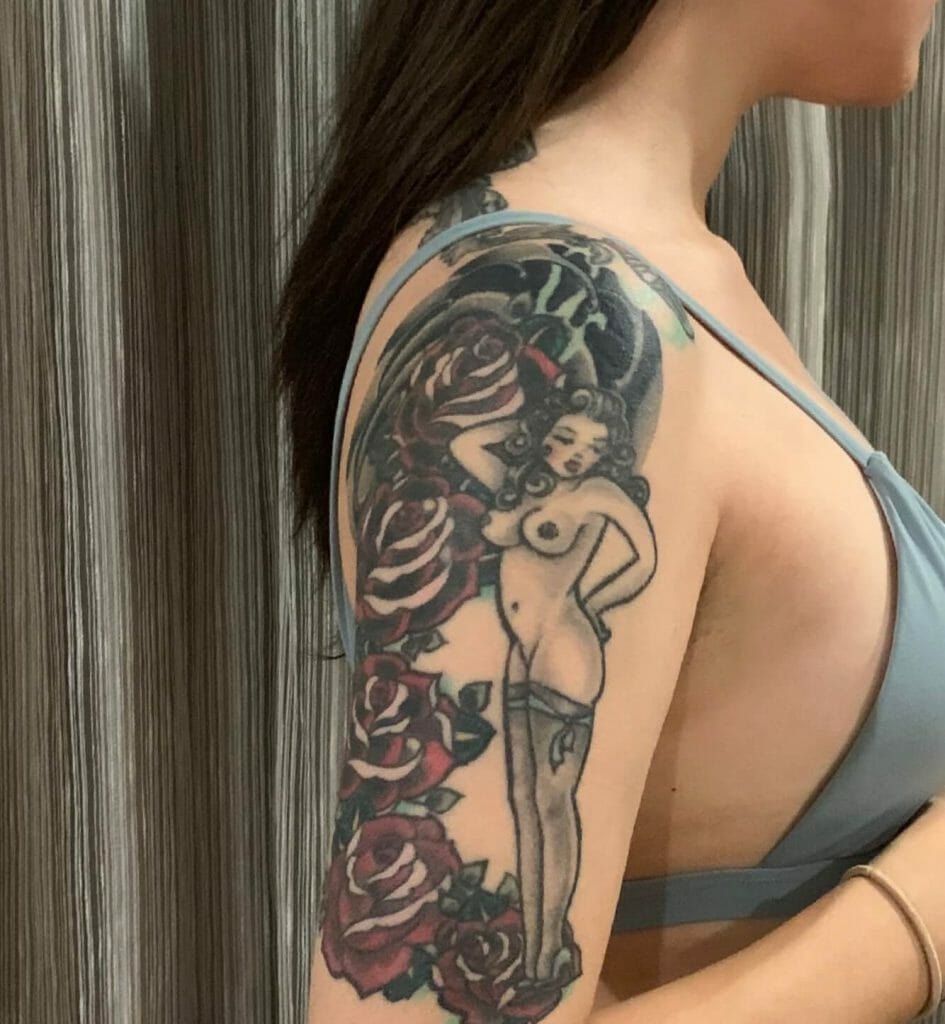
image credits: rose. Pin-up tattoo was done at old london road tattoos. Tebori (above pin-up) by sousyu hayashi
When she first arrived in Sarawak, the pin-up design caused controversy in the local community. “Being tattooed with this is considered the norm in London. But when I moved to Kuching, it made me realise how conservative Malaysians were (this was in 2010).”
She also advised, “At the time, I didn’t expect to move to Malaysia, so it didn’t occur to me if my tattoos would be acceptable in society. But it has impacted my ability to find work in certain industries locally.”
But some Malaysians were more positive about tattoos.
“I’m tattooed, and I introduced my wife to the tattoo culture. Now her back is more covered than mine!”, said Jason, 39, a safety officer with an oil and gas company.
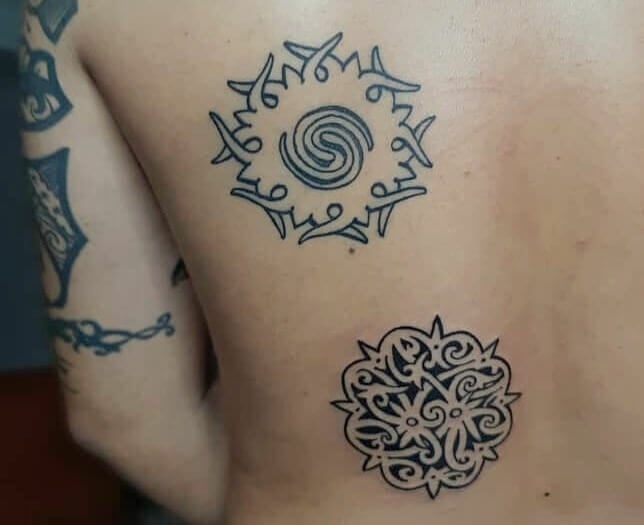
image credits: jason. Tattoos by: arth akal
His wife, Chia Wei, 41, a CEO, explained, “After I had my own family, I figured I no longer have to fear parental acceptance. My first tattoo ushered me into motherhood.”
“I’ve to ensure my tattoos are covered at work since I deal a lot with government bodies. However, sometimes they show when I’m in business dresses. On those times, I have been complimented.”
Might tag along for girlfriend’s next tattoo
Yee Hou, 32, an accountant, states that he has “no tattoos, but have been wanting one since 2014.” He thinks that tattoos are appealing if tastefully done.
His family are very accepting of the tattoos on his partner, Cherry, 26, who is a community officer at a co-working space.
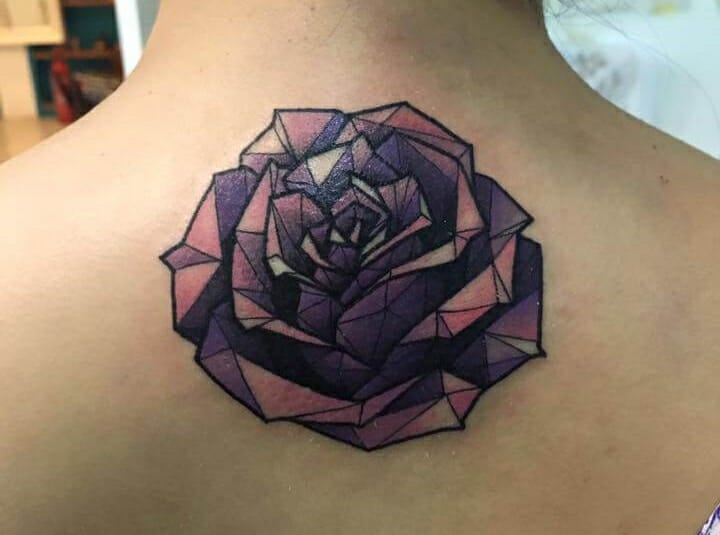
image credits: cherry. Tattoo by: khang wei
Yee Hou said he would be supportive of Cherry wanted to add to her collection.
“I might tag along for her next one to motivate myself to get one soon!”
What are the reasons why some Malaysians get tattooed?
“Tattoos on people are like their internet history browser. All the good, bad and drunken moments.” flippantly commented lead generation specialist, PK, 34, who has many tattooed friends.
But what other reasons drive Malaysians to go under the needle?
Extensive artwork due to cover-ups
Bong, 36, is extensively tattooed. The project manager is the father of two young sons.
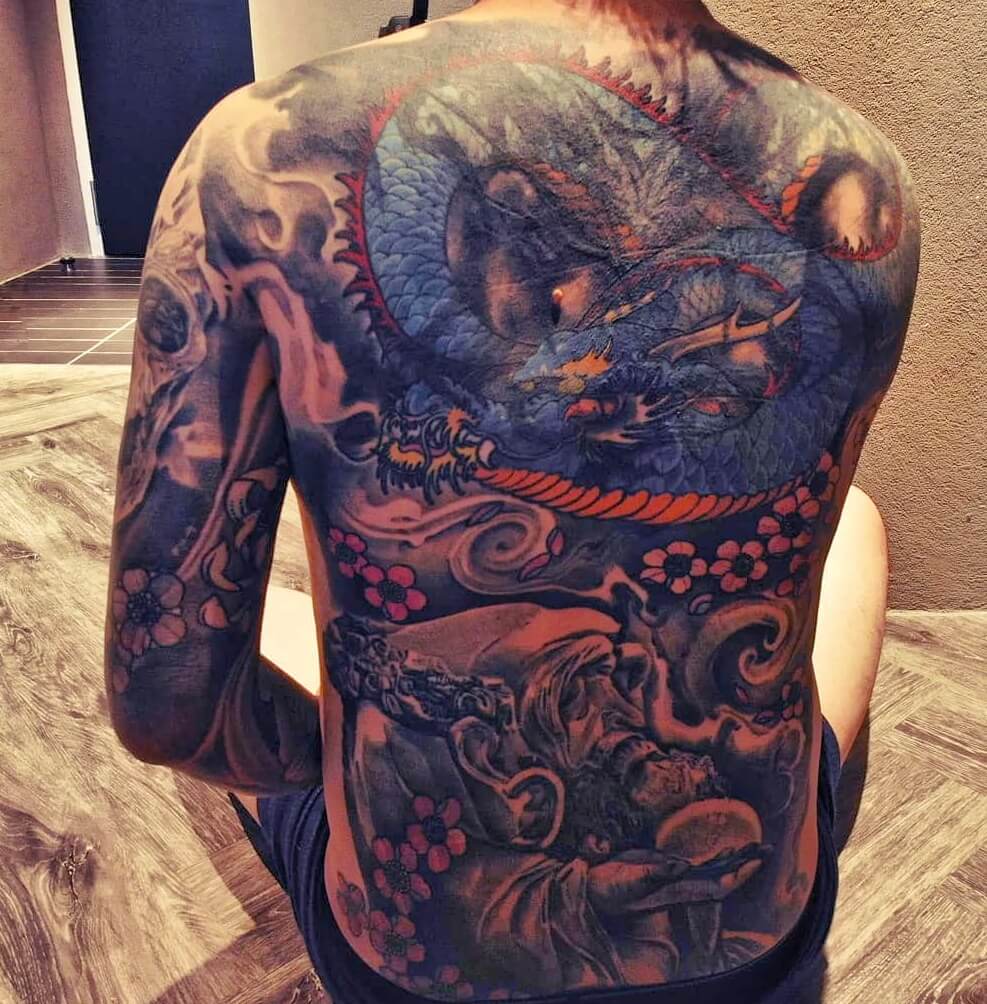
image credits: bong. Tattoo by: eric kueh
“I think they are quite visible,” he dryly remarks. “I didn’t intend to have as many. Some were due to mistakes. Did cover-ups, and then more cover-ups. Then suddenly, I found myself with this huge-a*s tattoo.”
Symbolises the duality of his cultures
Dan, 35, an author and investor, plans to stop at 14 tattoos.
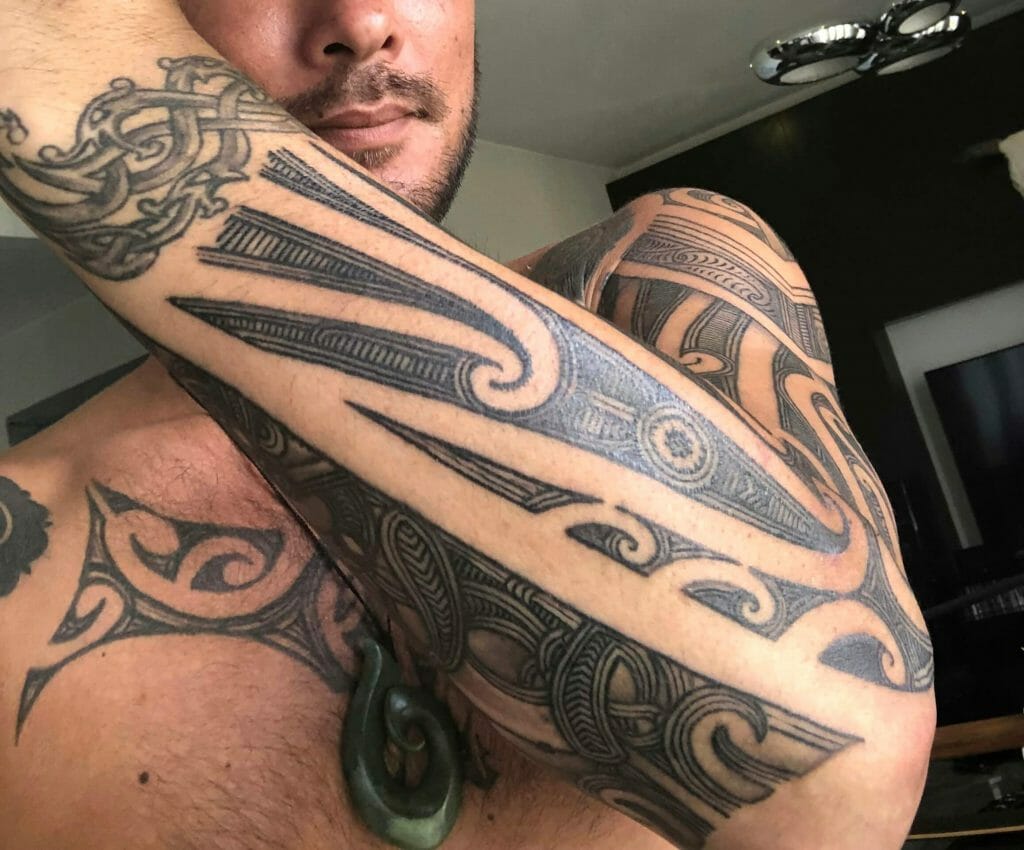
image credits: dan. Tattoo by: hohua mohi
His tattoos reflect the duality of his cultural and personal identity: “Growing up in both Sarawak and New Zealand, I always saw a lot of tattooed people, specifically Polynesian and Iban tattoos. Since childhood, I always knew I’d get them.”
Symbolises her children
Yvy, 41, has four tattoos. The office administrator based in Sydney acquired her latest tattoo in January. The design represents her five children – her three daughters and two sons, symbolised by butterflies and tiger cubs.
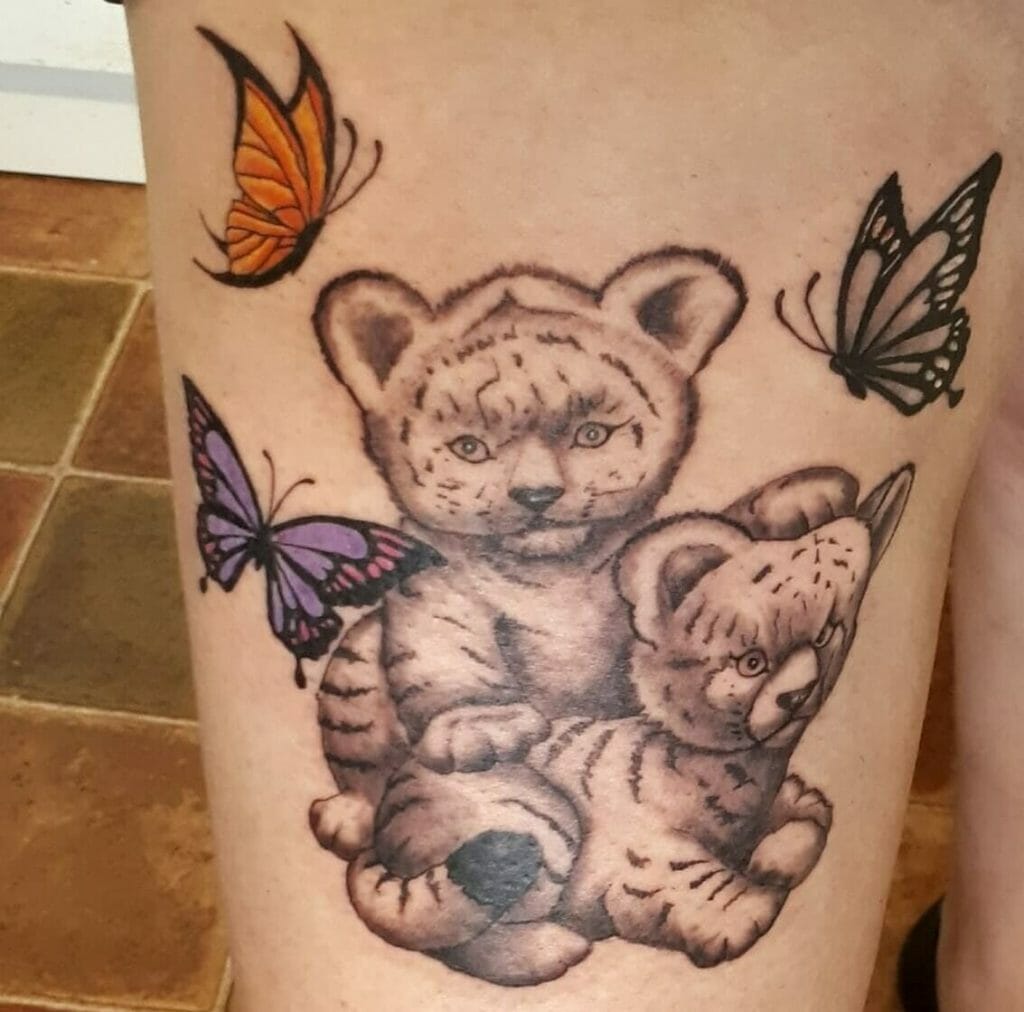
image credits: yvy. Tattoo by: ian (ink’d tattoo studio)
She’s now planning for her fifth tattoo to represent her friendship with her three best friends.
We also spoke to Malaysian tattoo artists.
Sarah N., 28, is a part-time hand-poke tattoo artist.
An illustrator, her interest began when she following a few tattoo artists on social media to study their art style. Before long, she got curious about how her own art would translate onto skin.
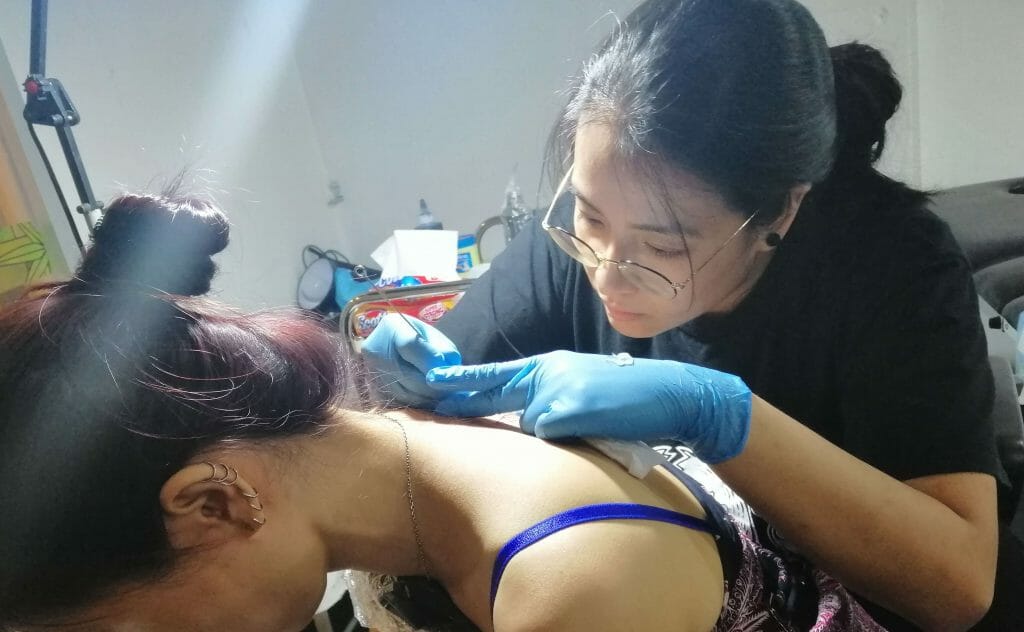
artist creating a hand-poke tattoo on a client. Image credits: sarah n.
After some research, she bought supplies and decided to try a small hand-poked tattoo on her own leg. Soon, friends were requesting little tattoos from her in her signature style.
Hand-poked tattoos are done by pushing an inked needle into the skin to create one dot at a time. Many people find this technique less intimidating than a machine tattoo.
The deeper significance of tattoos shouldn’t get lost in being ‘trendy’
Nessy Voon, 24, works as a full-time tattoo artist in KL.
Her chosen career path has received mostly positive reactions. “I only have negative responses from my family because I come from a religious background. It takes time for them to accept.”
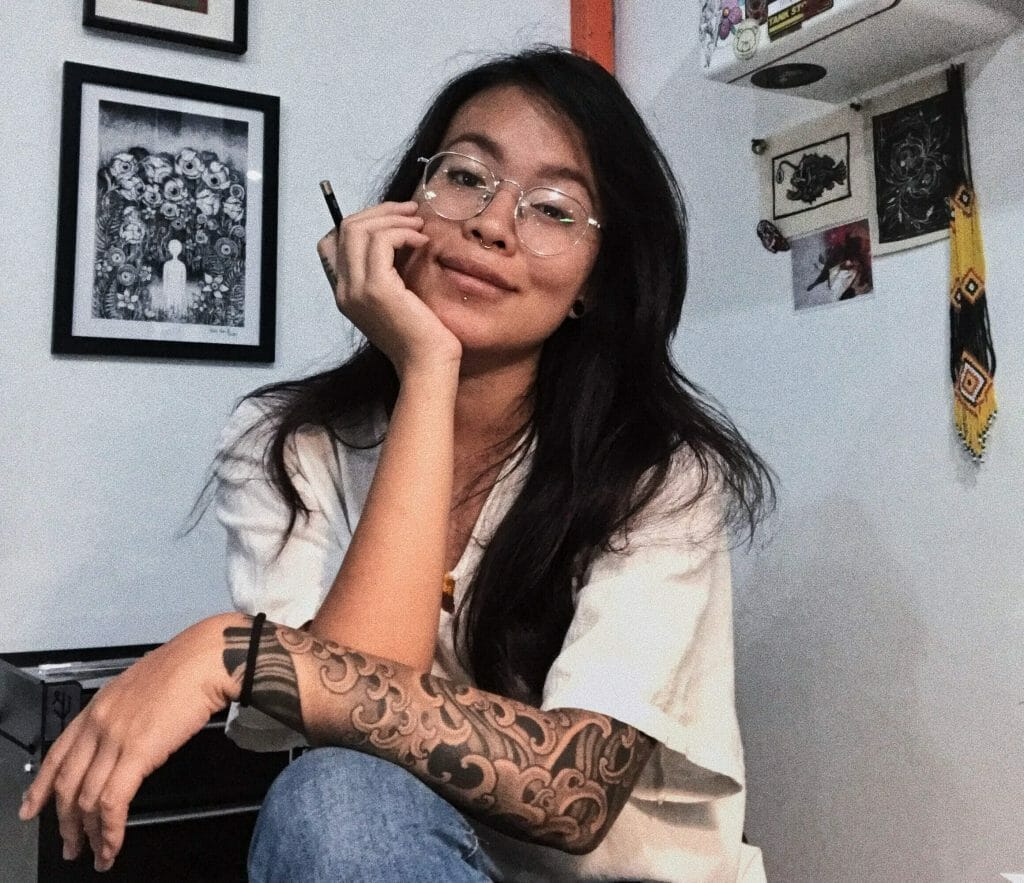
portrait of the artist. Image credits: nessy voon
“My craft is a beautiful trade where I get to hear stories from clients and immortalise those stories on their skin. When I’m working on a tattoo, it feels like I’m dancing on their skin.”
”I hope that people don’t do it just because it’s currently fashionable. And that the spiritual aspect of getting a meaningful tattoo won’t get lost in the process!”
A Borneo-born educator based in Australia, Diana, 34, echoed that sentiment, ”Traditional hand-tapped tattoos on the elderly age well. They were ‘earned’ by each individual. But now, people (in Australia) have a different concept: “the more the merrier”. They often look like walking billboards with trashy commercials.”
Both were concerned that the changing attitudes towards skin art might also cause less thoughtful decision-making in the process of getting a tattoo.
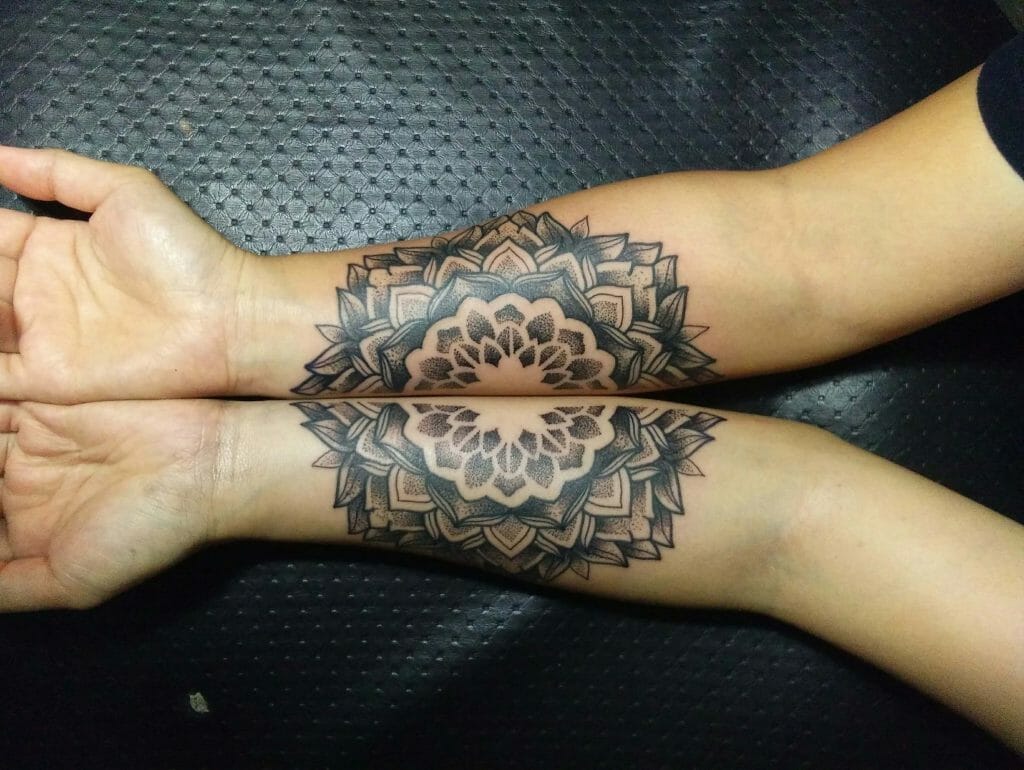
mandala tattoo by bunnybah. Image credits: bunnybah
Along with his wife, Bunnybah, 33, runs Whisperer Tattoo. He has this to say about his art: “I believe if you give out positive vibes, people will see you the way you want them to see you.”
“Do you regret any of your tattoos?”
Most of the people I spoke to didn’t regret their tattoos.
Yvy and Georgette got tattoos that carried plenty of significance for them.
Lynn said that her tattoos represented periods of her life that define her identity.
Rose felt that she might have opened up more career opportunities, had she not gotten inked.
However, like Lynn, she concluded that her tattoos and the experiences surrounding them contribute to who she is today.
Ironically, Bong attributes his extensive skin art to regret. Many of the scattered pieces acquired earlier in his life have been covered up under larger new tattoos.
“Yes. Of course (I regret). That’s how I ended with more and more tattoos. As you get to different junctures of your life, you look at things differently. Some tattoos I thought would be cool back then now feels kinda… lame. Tastes change over time. However, it’s a permanent reminder on your body, mapping your journey in life.”
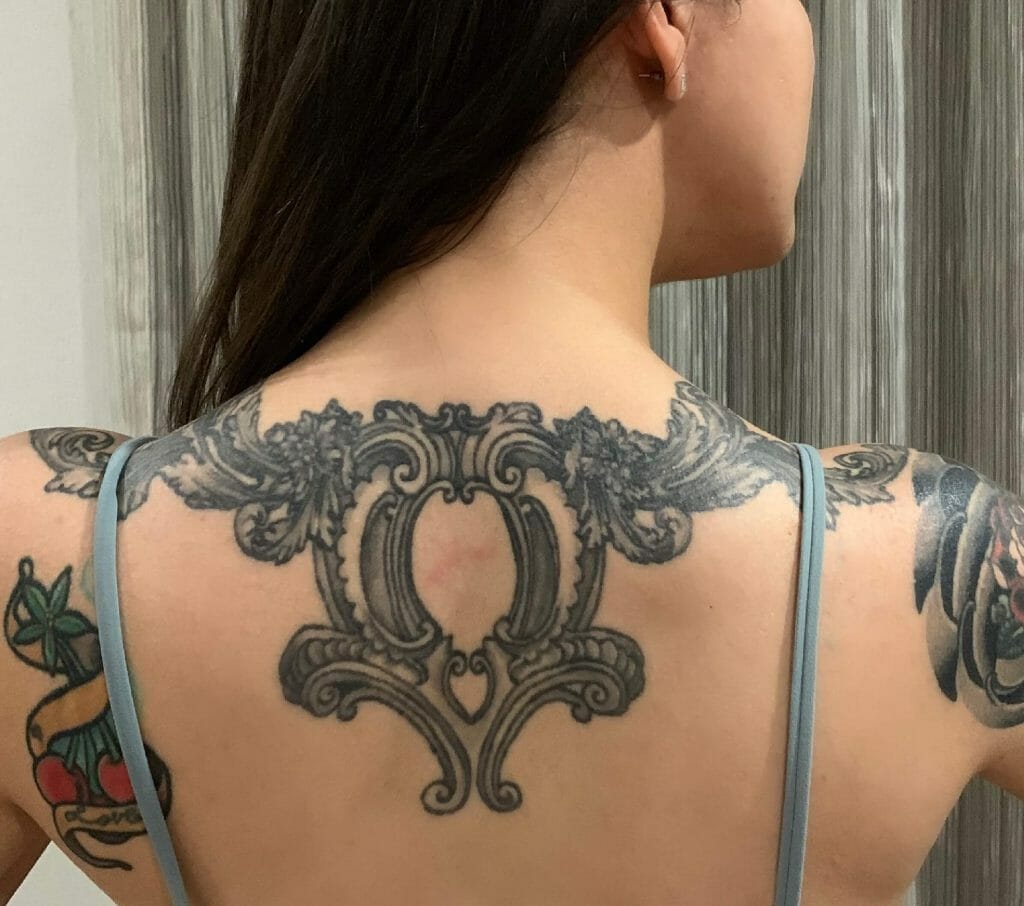
rose’s favourite tattoo (by fade fx) – which she got when she was accompanying her mother, for the latter’s first time under the needle!
Rose adds, “I think that carrying these designs has given me a sense of strength. You learn to accept who you are, even when some people don’t.”
Clearly, attitudes towards skin art are changing in Malaysia. Based on the outpouring of positivity I’ve received, it’s safe to say that there’s growing acceptance, as well as a resurgence of interest in tattoos.
As we muse about the personal significance of tattoos, my mother concludes her conversation with me with yet another surprising statement.
“My friends who’ve seen you are quite amazed. I wonder how that reflects on me. Some asked if I have tattoos too. I haven’t given it any thought. I’m not keen on the pain. But who knows, maybe one day.”
For more stories about taboo topics in Malaysian society that are recently getting more accepted, read 4 Myths about Smoking Marijuana Debunked by Malaysian Professionals and Oh No, Aunt Flo: Malaysian Women Share Their Worst Period Mishaps.

You might also like
More from Real People
‘A RM100 fee cost a company 5 years of revenue’ shares M’sian
This story is about a Malaysian who learned that bureaucracy can be defeated simply by not arguing with it.A billing …
‘I quiet-quit, upskilled, and tripled my salary,’ shares M’sian engineer
This story is about a Malaysian who learned that loyalty without leverage leads nowhere in the corporate world.After years of …
‘I did everything right, and it still wasn’t enough’ shares M’sian graduate
This story is about a Malaysian graduate navigating big dreams in a job market where a degree no longer guarantees …






